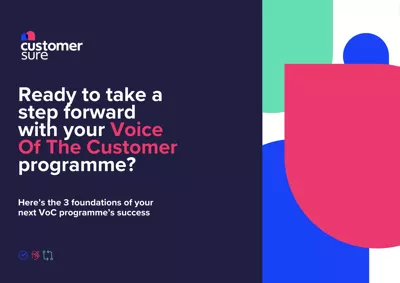

Reviews are used extensively by many businesses, but it would be wrong to assume they actually benefit the customer. This post explains why using them alone is dangerous.
It feels like we can’t move for reviews these days. Either being asked to provide a review, or having other people’s reviews thrust upon you, whether you want to see them or not. It’s a topic I have a real love/hate with.
Just to be clear, I do find most reviews helpful. When looking at products or services online, from items on Amazon or restaurants on Tripadvisor, reviews can be extremely useful in helping you make an informed decision, hearing from other customers what they thought and experienced.
We humans value the thoughts of others and want reassurance, or validation, that the product or service will fulfil our needs, or even delight us. Positive reviews give us some confidence that buying that product, visiting that restaurant or subscribing to that software will be a good outcome for us too. Conversely, negative reviews make us wary and less likely to go ahead. Would you visit a restaurant where the vast majority of recent reviews give it 1 or 2 stars and complain about the service? Unlikely.
Of course, the accuracy of reviews, and the gaming of the reviews system (for example, artificial reviews, incentivising people to give positive reviews and only showing the good reviews on your website) has been well documented and is the topic for another blog, but for now let’s assume the majority of reviews we see are fair and accurate.
So, as a source of information to help us make our decisions, reviews are definitely valuable, and they’re here to stay.
Whilst we may agree reviews provide some value, they actually do very little to improve the customer experience overall.
Reviews do one job well – they help the business with marketing and sales. They help to win new customers and sell more widgets. As a marketing tool to help grow the business, reviews can indeed be very powerful.
And that’s also where the problem lies: The company benefits at the expense of the customer. That is, the company sells more, and the customer does the work (by writing the review).
But customer experience only improves when the company does some work to benefit the customer. And this is what delivers lasting value and improves customer retention. It’s no good winning more new customers if you’re losing them just as quickly. Putting it another way, to fill a bathtub you need a plug as well as taps!
To improve customer experience successfully (which, by the way, will ultimately lead to even more great reviews) there are other things that need to happen, so that you can gather valuable feedback for internal use:
A good customer feedback process, with structured surveys asking the right questions at the right time, will certainly provide the business with the feedback and insights it needs.
When we speak to some businesses and they say they collect reviews so they don’t need to have feedback surveys, we try to explain the difference between the two, and why reviews alone aren’t enough. We will win the argument with truly customer centric businesses who genuinely want to improve. We won’t win the argument with businesses who are purely sales driven and don’t really care what customers think, and just want to show the good reviews to help win more business.
But it isn’t a question of one or the other. Many CustomerSure clients also collect reviews, and it makes complete sense to do that. The secret they’ve learnt is that good reviews come about from consistently delivering a good customer experience, and the feedback from surveys helps them provide this good customer experience, so one feeds the other.
So when a colleague says that you collect reviews so you don’t need surveys, think about who ultimately benefits, and how you might deliver lasting value for customers, not just a quick sale who might be gone tomorrow..
At CustomerSure, we’re fanatical about helping our customers drive tangible business benefits through their customer feedback process. To help, we produce a wide range of guides and resources (and award winning customer feedback software) to assist at every stage of the journey.
For anything else, we’re just a contact form away!

Ready to elevate your VoC programme and ensure success using our expert guide? Learn the three foundations required for success.
Discover more »Connect with a CX expert who’ll help determine your current VoC programme maturity level and provide a 3-step action plan to improve.